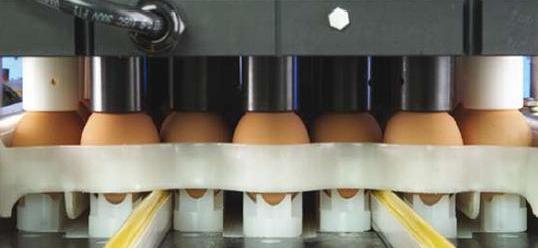In ovo vaccination against coccidiosis

Coccidiosis control was and still is a matter of treating birds through feed or spray administration. Another new method, however, also seems effective. Pfizer Poultry Health introduces Inovocox, immunising day-olds through in ovo injection.
By Ad Bal
With the introduction of a new coccidiosis vaccine a new standard of efficient health control for the poultry industry has been achieved. This Inovocox vaccine, developed by the Poultry Health Division of Pfizer Animal Health (PPH), is delivered via in ovo administration and will provide a new tool for the broiler industry to help control one of the global poultry industry’s most prevalent and costly diseases.
Coccidiosis is an intestinal parasitic infection that is endemic to poultry production and can cause considerable economic loss in the form of lost growth and feed conversion efficiency, mortality, and medication and treatment costs. The economic impact of the disease on the world poultry industry is estimated to exceed US$3 billion annually.
Pfizer Animal Health has invested over 10 years into the research and development of this vaccine, which is delivered to the egg even before the chicks hatch. Inovocox is administered in ovo to 18- or 19-day-old incubated broiler chick eggs via an in ovo injection system.
Individual uniform dose
Coccidiosis control programmes depend, traditionally, upon a feed administered anticoccidial drug or a vaccine that may be administered via spray to the chicks. “The in ovo administration of Inovocox helps ensure that every bird receives a uniform dose for effective protection,” says Rebecca Poston, senior manager of Pfizer Animal Health Veterinary Medicine Research & Development (VMRD). “This technology is based on more than a decade of research,involving millions of birds, to evaluateInovocox for efficacy and safety.”
The Inovocox vaccine contains highly immunogenic, anticoccidial-sensitive, sporulated oocysts of E. acervulina, E. tenella, and two strains of E. maxima. These originated from field isolates, which were screened and selected for their ability to help protect against challenge when administered in ovo, and for their sensitivity to anticoccidial drugs. Pfizer researchers deemed it advantageous to include two strains of E. maxima, because of the more common field variation of this species which may help enhance the vaccine’s total protection package against the strains commonly found on poultry farms.
No effect on hatch rate
Pre-hatch exposure to coccidial organisms will allow birds to develop early immunity to the disease. Early and uniform flock immunity to coccidiosis helps provide control of clinical and subclinical coccidiosis and may result in more uniform growth and development of the flock throughout the grow-out.
According to Pfizer, extensive research showed that Inovocox has no significant effect on hatch rate. Performance trials show Inovocox-vaccinated flocks will help provide attractive weight gain, feed conversion and settlement costs. In addition, Inovocox vaccine may be used as a year-round coccidiosis control programme, or as part of an annual rotation programme.
One dose of Inovocox helps provide broiler birds with life-long immunity against coccidiosis, Pfizer says. The new vaccine is a useful addition to the use of in ovo injection systems, which already is utilised on a large scale in the broiler industry. It seems like Inovocox will be a new convenient, efficient and precise method of coccidiosis protection.













